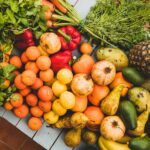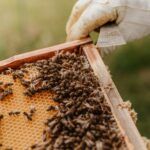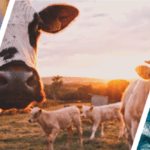- Binding targets need to be set to reduce pesticide use
- Animal welfare standards need revision
- More land for organic farming
- Farmers and ranchers must be fairly compensated for sustainable food production
The EP presented its plans to produce healthier food, ensure food security and a fair income for farmers and livestock farmers and reduce the environmental footprint of the sector.
The Farm to Fork Strategy is welcomed by MEPs, who stress the importance of producing sustainable, healthy and animal-friendly food to achieve the objectives of the European Green Pact, particularly in terms of climate, biodiversity, zero pollution and public health.
The Chamber stresses the need to improve sustainability at each and every stage of the food supply chain and reiterates that everyone – from farmer and rancher to consumer – has a role to play. To ensure that producers can reap a fair share of the benefits of sustainably produced food, MEPs call on the Commission to redouble its efforts – if necessary by adapting competition rules – to strengthen their position in the supply chain.
Other recommendations of the Parliament:
Healthier food
– Formulate scientifically sound EU nutrition recommendations.
– Tackle excessive consumption of meat and ultra-processed foods high in salt, sugar and fat, including by setting maximum intake levels.
Pesticides and pollinator protection
– Improve the approval process for pesticides and better control their use to protect pollinators and biodiversity.
– Set binding targets for the reduction of pesticide use. Member States should implement these targets through their CAP strategic plans.
Greenhouse gas emissions
– The “Target 55” package of proposals for 2030 should regulate and set ambitious targets for emissions from the agricultural sector and its land use, including strict criteria for biomass-based renewable energies.
– Natural carbon sinks should be restored and enhanced.
Animal welfare
– To advance pan-European harmonization, common indicators on animal welfare, with sufficient scientific backing, are needed.
– It is necessary to review existing European legislation and decide whether changes are needed.
– Gradual end to the use of cages in EU livestock farming.
– Animal products from outside the Union will only be allowed access to the EU market if they meet standards comparable to European standards.
Organic farming
– By 2030, the area devoted to organic farming must be increased.
– Initiatives – promotion, public procurement and taxation – are needed to stimulate demand.
The resolution was adopted by 452 in favor, 170 against and 76 abstentions. The vote took place on Tuesday and the results were announced on Wednesday.







Leave a Reply